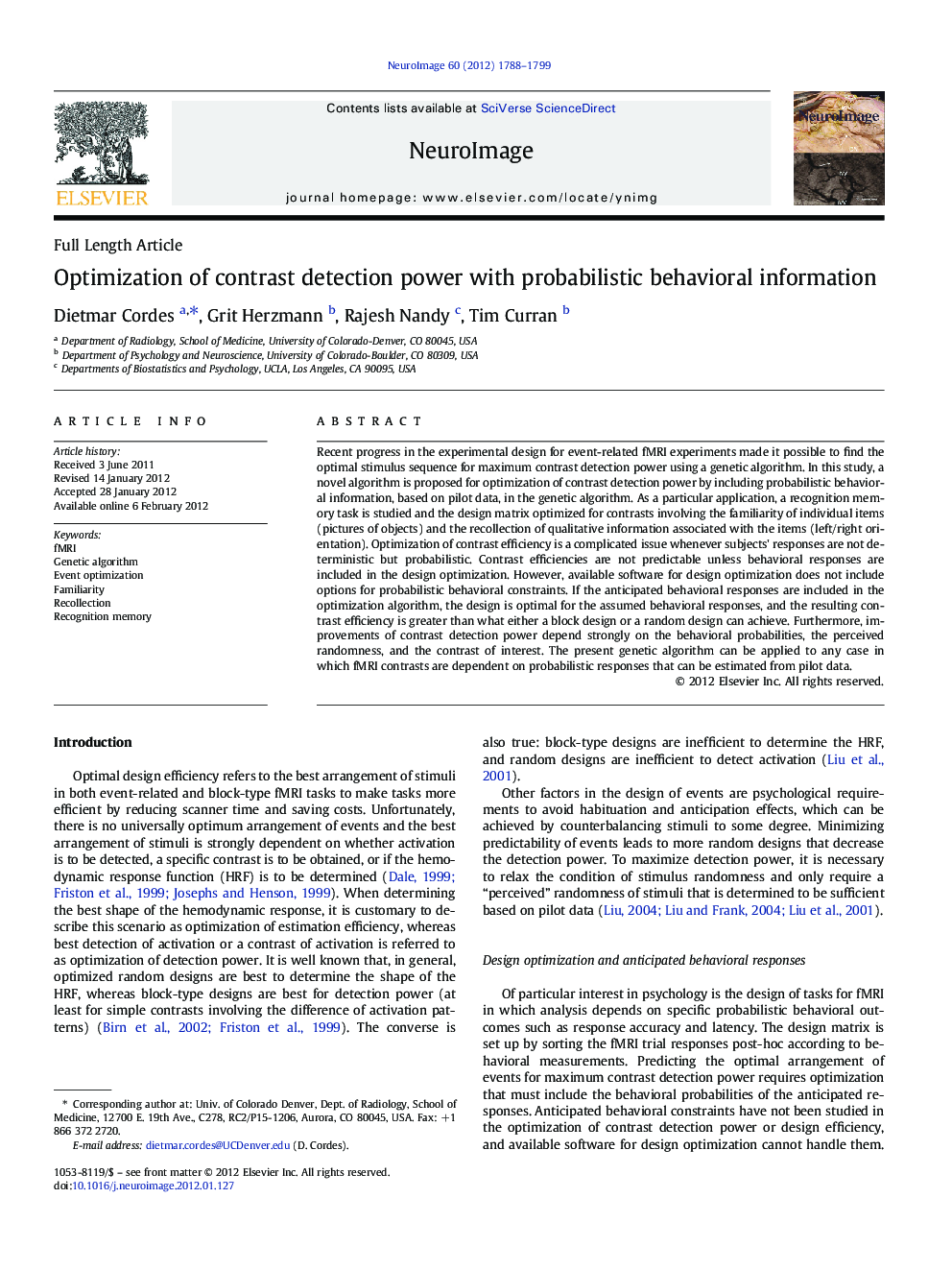| کد مقاله | کد نشریه | سال انتشار | مقاله انگلیسی | نسخه تمام متن |
|---|---|---|---|---|
| 6031984 | 1188737 | 2012 | 12 صفحه PDF | دانلود رایگان |

Recent progress in the experimental design for event-related fMRI experiments made it possible to find the optimal stimulus sequence for maximum contrast detection power using a genetic algorithm. In this study, a novel algorithm is proposed for optimization of contrast detection power by including probabilistic behavioral information, based on pilot data, in the genetic algorithm. As a particular application, a recognition memory task is studied and the design matrix optimized for contrasts involving the familiarity of individual items (pictures of objects) and the recollection of qualitative information associated with the items (left/right orientation). Optimization of contrast efficiency is a complicated issue whenever subjects' responses are not deterministic but probabilistic. Contrast efficiencies are not predictable unless behavioral responses are included in the design optimization. However, available software for design optimization does not include options for probabilistic behavioral constraints. If the anticipated behavioral responses are included in the optimization algorithm, the design is optimal for the assumed behavioral responses, and the resulting contrast efficiency is greater than what either a block design or a random design can achieve. Furthermore, improvements of contrast detection power depend strongly on the behavioral probabilities, the perceived randomness, and the contrast of interest. The present genetic algorithm can be applied to any case in which fMRI contrasts are dependent on probabilistic responses that can be estimated from pilot data.
⺠Order of stimuli can be optimized for probabilistic behavioral responses. ⺠The optimized design is robust to small changes of the behavioral probabilities. ⺠Improvement of up to 13% in detection power can be achieved.
Journal: NeuroImage - Volume 60, Issue 3, 15 April 2012, Pages 1788-1799